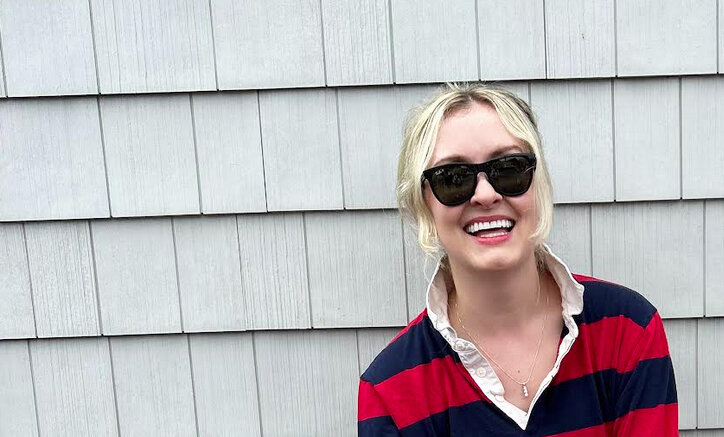Love and alcohol
When navigating the risk of toxic relationships; shame doesn’t live her anymore
Here in Rhode Island, a similar kind of problem around “promises” exists with the new, $45 million R.I. Life Science Hub. The first appointments to the Hub’s board by Gov. McKee were three old white men – Ernie Almonte, Armand Sabitoni, and Neil Steinberg. Another six statutory appointments – the presidents of Brown, URI, RIC, the CEO’s of Lifespan and Care New England, and the Dean of the Brown Medical School – bring the total to eight older white men and only one woman.
Gov. McKee has four more picks to make for the board –one that is currently lacking in diversity, with only one woman, no African-Americans, and no Hispanics. The new dean at Brown Medical School can talk about the change from inpatient care to taking care of patients where they live. But the failure to include women and people of color on the Hub’s board is much like the false promises of a bad romance in a life distorted by drinking alcohol – filled with denial.
PROVIDENCE – It’s ‘Dry January,’ but I’ve got love on my mind. [And to those trying a break from alcohol with the New Year – welcome! I’m so glad you’re here!]
In the decade I’ve been sober, I’ve had time on my hands to contemplate. Distance allows for new layers of reflection, as my perspective shifts.
I find it hard to remember many of the details of my drinking. Time dulls the sharp edges of regret. Shame doesn’t live here anymore.
While it can be common to romanticize the past — anyone ever reach back out to an ex? Look back and think, maybe another shot? Picture that friend who didn’t actually treat you so well and think only of their fun qualities?
It’s refreshing to live out a clear-headed assessment of my relationship with alcohol. Increasing space from drinking continues to strengthen my commitment to sobriety. Now that I’ve committed to a life without it, I don’t look back on alcohol with rose-colored glasses. This came only after I spent years romanticizing alcohol and dwelling in an abusive cycle.
And that’s got me thinking about love, addiction, and the feelings and language we use around both relationships and substance abuse. The similarities between dysfunctional drinking and toxic relationships are striking.
With interpersonal relationships, the familiar and comfortable can be more appealing than solitude. Being single, leaving friendships, and letting connections fade often means choosing you instead of settling – and sobriety is all about choosing you, above all else.
Quiet and calm [and frankly, boredom at times] can be less enticing than the push and pull of a toxic connection.
Both substances and toxic relationships can distract from all else in life, and that’s a powerful pull. I struggled with larger issues in life while my drinking was the worst – financial fears, familial chaos – and alcohol blotted that out. It wasn’t possible to worry too much about my finances when my mind was absorbed in the highs and lows of active addiction. There wasn’t space for me to question whether my life matched my heart when I was obsessing about my drinking. I was using alcohol to cope. And I have similar experiences with romantic attachments. The drama can be addictive.
Willful denial
In a toxic relationship with a person or a substance, there must be willful denial. Despite clear evidence of problematic patterns, I continued to refill my glass. I refused to see what was in my hands and poisoning my life. We have all seen [or experienced] this willful denial in interpersonal relationships, too. It could be a parent, a partner, a friend, or someone else. To continue to stay close to those who hurt us in the same ways again and again is to carry denial.
However dysfunctional, hope is a part of it,too. There’s fatal optimism in the calculations happening with substance abuse, but the math isn’t computing in the real world. That same maladjusted optimism is persistent in toxic relationships, too.
Changing the equation
Me plus alcohol equals different result this time, even though the last hundred have shown I can’t moderate. Me plus that person equals joy, even though I feel smaller every time I see them. Perhaps if I just try a little harder to moderate my drinking I’ll get it right. Maybe with a little more work, we can be a good couple this time around. Maybe my family member won’t cut me down as long as I anticipate a little bit better.
I love wine, I can’t live without it. I love him/her, I can’t live without them. Baby. A breakup is what you need. Love shouldn’t hurt. Substances shouldn’t harm. Whether it’s physical, emotional, mental, spiritual, or financial – damage in any capacity is a profound threat.
If this hits your heart, please consider taking measures to step back or get out. Taking back control takes kindness and courage. And, I’ll be the first to let you know that you have all you need within you to make it happen.
Katherine ‘Katy’ Linwood writes a monthly column, “The Bright Side,” about sobriety, for ConvergenceRI. Connect with her on IG@latherine.linwood






